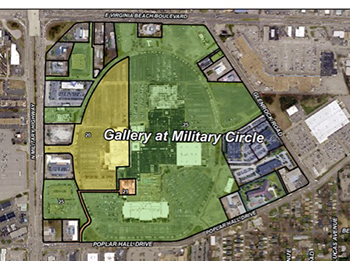Facebook Inc. announced Thursday that it has awarded a total of nearly $170,000 from its COVID-19 Local News Relief Fund Grant Program to three Virginia media outlets: The Richmond Free Press, Charlottesville Tomorrow and the Henrico Citizen.
Facebook received more than 2,000 applications for the funding, dividing more than $10 million in grants among 144 local U.S. newsrooms to support publishers who have been hard-hit by plummeting advertising revenues during the pandemic. The grants stem from $25 million in local news relief funding that Facebook announced in March as part of a $100 million global investment to support the news industry.
“We’re proud to support this diverse group of publishers — many of which are family or independently owned,” Campbell Brown, vice president of global news partnerships at Facebook said in a statement. “Not only are these journalists working tirelessly to serve people right now — they’re focused on transformation, building innovative local news businesses that can continue to serve communities beyond the current pandemic.”
The Richmond Free Press received $100,000 from Facebook. Founded in 1992 by the late Raymond H. Boone, a former associate professor at Howard University, the weekly broadsheet newspaper covers the city’s African American community.
“Obviously we are very gratified and we are very pleased because it will help us to continue to cover this awful virus and to educate our readers and to encourage our readers,” said Jean Patterson Boone, publisher of the Richmond Free Press. Pointing out that her newspaper’s predominant demographic is disproportionately affected by the disease, Boone said that it’s important for the Richmond Free Press to correct misinformation about the pandemic. “I’m just delighted we have an opportunity to step up our role and … stay in business. We have never missed a payroll through this whole [pandemic] and we don’t intend to.”
Charlottesville Tomorrow received $35,000 in grant funding. The nonprofit, local journalism website is supported by reader contributions, foundation grants and philanthropists. Founded in 2005, it covers topics ranging from government and politics to public health and business.
Established by Tom Lappas in 2001, the Henrico Citizen covers local news in Henrico County. The publication, owned by T3 Media LLC in Henrico, received $34,350 in funding.
In applying for the grant, applicants were asked to submit a budget roughly outlining how the funding would be used. The Henrico Citizen plans to use the funding toward part-time, freelance and intern help, as well as multimedia and explore more in-depth virus coverage, Lappas said. He said the publication also plans to involve small businesses and nonprofits on a project that the Citizen plans to release more details on later.
“It’s going to be fantastic for us, especially at this time where we’ve lost probably half of our advertising revenue in the last couple months,” Lappas said. “Just trying to keep going has been a challenge.”
Preference was given to publications that serve immigrant, rural, underserved or economically disadvantaged communities; represent areas where COVID-19 impact is acute; are family- or community-owned or independent; have an established digital readership; and have not yet received grants from the Facebook Journalism Project in 2020, according to Facebook.
“In looking at the criteria, they described us in a lot of ways — locally-owned, serving a specific geographic area affected by the virus,” Lappas said. “I thought a lot of things lined up for us to potentially get one, but I knew that the competition was going to be pretty significant. I was really pleased to see the email come through today.”
Henrico County is one of the top 10 localities in Virginia in terms of number of initial unemployment claims filed, with more than 2,000 jobless claims filed last week. As of Thursday, the county also had 1,025 reported COVID-19 cases and 109 deaths, according to the Virginia Department of Health.
Recipients were selected by the Local Media Association and The Lenfest Institute for Journalism. The Institute for Nonprofit News, Local Independent Online News Publishers, Local Media Consortium and the National Association of Broadcasters were also a part of the selection process.
The Facebook Journalism Project Local News Accelerator Program launched in 2018 to support local news businesses and has had more than 600 participants from more than 100 newsrooms worldwide.
Virginia Business Editor Richard Foster contributed to this story.

Subscribe to Virginia Business.
Get our daily e-newsletter.



